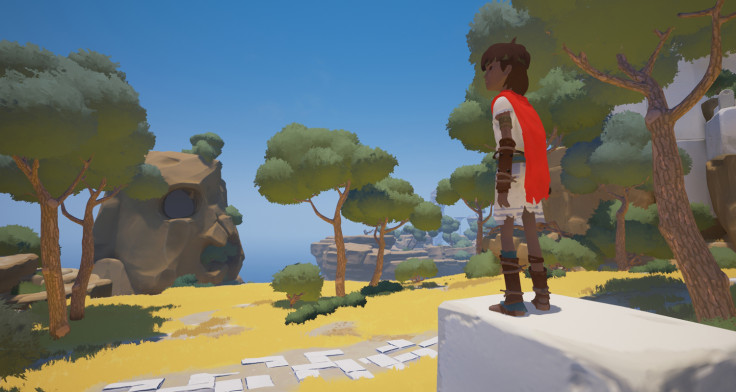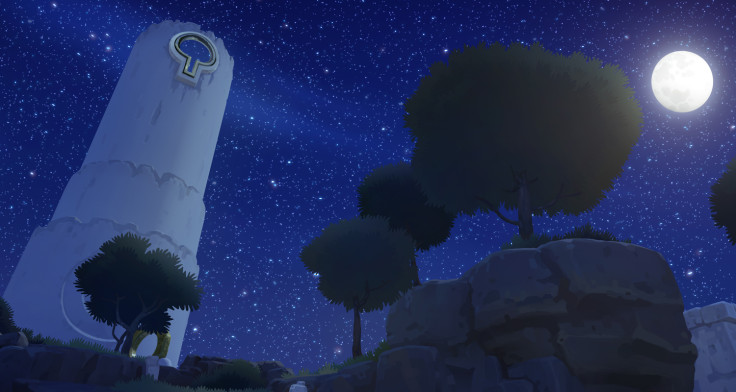Rime director on Tequila Works' 'crisis of faith' and finally releasing its unforgettable adventure
Raúl Rubio discusses the ups and downs of developing a personal adventure.
Out today (26 May) on PS4, Xbox One, PC and Nintendo Switch, Rime is an indie adventure game about exploration and puzzle solving. It's gorgeous, artful and one of our favourite games of the year so far, but it's also the product of a long and trying development.
Rime review: Tequila Works' adventure is a beautiful ode to life, loss and childhood
Rime's director on 'intense' development: 'We were sure the game would not see the light'
Tequila Works, the team behind Rime, first revealed the project the better part of four years ago, no doubt unaware of the troubles that lay ahead. As the game finally sees the light of day, I spoke to its charismatic director Raúl Rubio.
IBTimes UK: After all the trials and tribulations, what is it like to finally be releasing Rime?
Rubio: A feeling of completion. It's like swimming knowing that you either reach the other side or drown. That feeling of both accomplishment and survival is overwhelming. It's also kind of melancholic; we have been with Rime almost 4 years. For all of us a story ends and a new one begins.
How would you describe the game to people who might not know what it is?
Rime is an evocative experience. You wake up on the shores of a mysterious island lost in the Mediterranean. In essence, Rime is an adventure of exploration and discovery driven by curiosity. We wanted the player to see the world through the eyes of a 8-year-old kid again.
Rime has a child protagonist, something we've seen a lot recently in games like Inside, Little Nightmares and The Last Guardian. What does a child's perspective offer adventure games?
The most obvious is that vulnerability, fragility and innocence. Your avatar is not an experienced adventurer, a muscled hero or whatever. But on the other side, an infantile character is far from helpless: he is full of determination. What he lacks in strength he exceeds in wits and ingenuity.
Also a kid is oblivious of the dangers of the world and that was critical for us because we wanted the player to be reckless, not be afraid of failing. We wanted the player to explore, wonder what's beyond and not think of the consequences.

You've discussed before how comparisons to classics like Wind Waker and Ico affected the team following the game's initial debut, but those comparisons haven't gone away. How did the team learn to deal with the pressure such comparisons bring?
We had to endure our own crisis of faith. Those are giants whose shoulders we stand on of course, but Rime has its own personality, so we thought that people weren't getting the right message and it was our fault. Was it the visual style? Or maybe [the game's] kid protagonist? Gameplay was really different and that was something players couldn't see from the trailers.
So we said that next time people would see the game, they had to be able to play the game. In the meantime, we were tempted. If the world expected Rime to be like Zelda, maybe we should give them what they wanted... but it was a travesty, it was not true to our original vision. So we isolated ourselves from the outer world to keep our course without echoes of sirens that could make us wreck in the rocks.
How does the final product compare to the game as it was, or was envisioned, when it debuted in 2013?
We always had the Island, the Tower and the Kid. That never changed. The rest has been an iterative process of design by subtraction: we removed everything that was not essential to the experience. Let me give you an example: survival mechanics. What was the point of telling the player to act as kid, and not worry about tomorrow when at the same time you had to desperately look for water, food and shelter to avoid death?
The collapse of your deal with Sony was at the root of the game's lengthy development. Has the experience with them put Tequila Works off potentially signing similar deals in the future?
No. Buying back the IP rights had nothing to do with that. We never announced a release date until January 2017 so I guess it's more a matter of gamers setting up expectations because we showed the game in 2013. Probably too early, I agree.
But the reason behind it was practical: we are a small indie studio. Reaching as many users as possible was good for Rime. That meant going multiplatform and understandably you can't do it as a first party. We have worked with Microsoft and Sony in the past, and we'd do it again in the future. If we ever work with Nintendo we'd unlock an achievement!

It depends on the project: we just self-published The Sexy Brutale in co-production with Cavalier Game Studios. We are co-publishing The Invisible Hours with GameTrust. And we are going to self-publish another unannounced project.
For us it's not a "one size fits all" policy. We tailor experiences after all, so it makes sense that that translates to the production itself.
Broadly speaking how do you think major publishers and platform holders treat smaller indie studios? Is there room to improve relationships between them?
It depends on many factors: the publisher interests and plans, the producer assigned to your project, the muscle in marketing, communication and promotion... the red line should always be creative freedom and respect to IP ownership. It's not always the case so yeah; things can improve for all parties involved. Switching from a master-servant structure to a partnership would be a win-win scenario for everyone.
Having said that, we've had a very positive and fruitful relationship with Rime's publisher, Grey Box. They have constantly acted as partners in the process, helping us to maintain total creative control and allowing the team to focus on finishing the game while they focus on the publishing aspects.
There's still the Switch version to come, but do you know what's next for Tequila Works?
I loved when Sega answered "we are always working on the future!" So there you go, we are already working on the future.
For all the latest video game news follow us on Twitter @IBTGamesUK.
© Copyright IBTimes 2025. All rights reserved.






















